PIRATE UTOPIA is a perfect political satire novel for our times
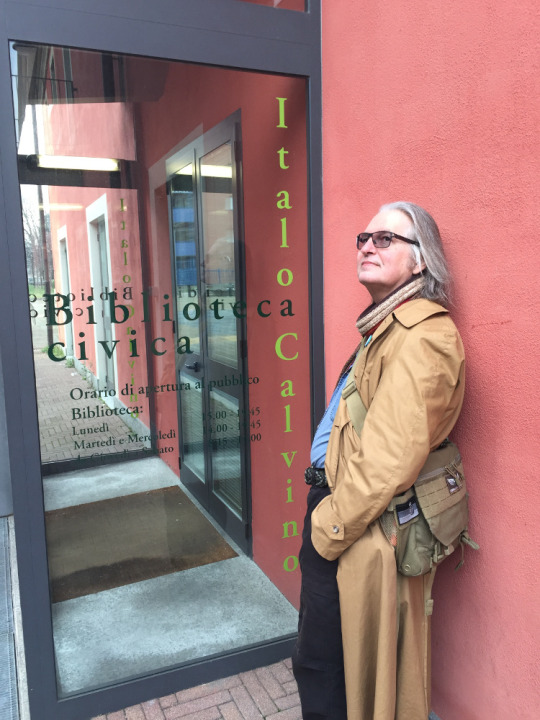
At SHORELINE OF INFINITY, Iain Maloney enjoys Bruce Sterling’s PIRATE UTOPIA.
“Strange days
indeed” as John Lennon once sang, and Pirate Utopia seems to be the
perfect political satire novel to have come out in 2016 given the
events of Brexit and the election success of Donald Trump, though as
a novel PIRATE UTOPIA is far from perfect. Think Chaplin’s THE
GREAT DICTATOR with the Marx Brother’s DUCK SOUP added into the mix
as well as a sprinkling from Orwell’s ANIMAL FARM and Fritz Lang’s
METROPOLIS and you might have something close to the exotic dish that
Sterling has served up here. However while the aforementioned films
were fictions, Sterling’s novel owes more to Chaplin’s film which
parodied Hitler and European fascism; and Orwell’s novel which gave
an animal spin on the Russian revolution and events thereafter.
Sterling has also used real people – some in unlikely guises –
and mixed them with his own memorable cast.
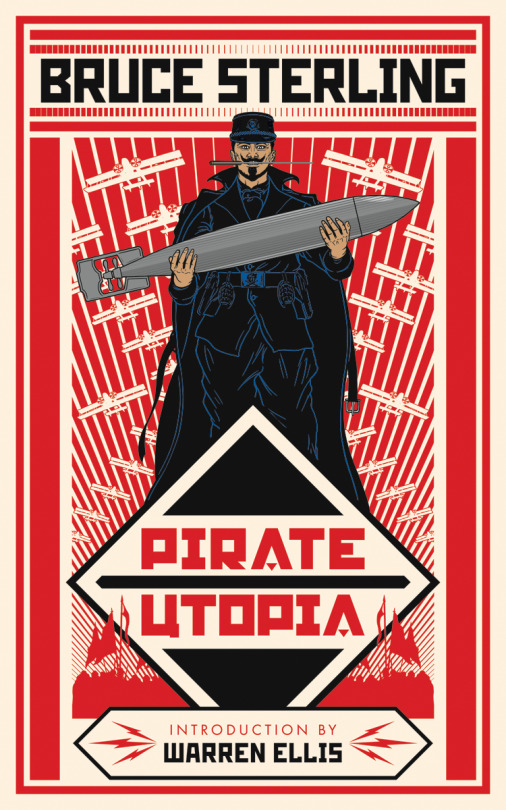
The Spanish-language site EL JARDIN DEL SUEÑO
INFINITO praises the book.
Bruce Sterling is a loquillo. He uses rather pulp names that are shocking to the characters in the play: Ace of Hearts, The Prophet, The Pirate Engineer. It puts the heroes of the play as they see themselves, heroes of futurism, rather than as history sees them: fascists.
The novel also has some interesting cameos; Mussolini, Hitler, Harry Houdini, HP Lovecraft and Robert Howard. But since nothing is taken seriously, unfortunately the play seems a complete farce, caricature and coarse.
Personally I liked it a lot, but I think it influences me to be a fan of Sterling colored bone, the only thing I dislike is that it was so short in extension.
Fascists with atomic bombs ten years after the end of World War I, what can go wrong?
Translation from Spanish, courtesy of Google
After reviewing PIRATE UTOPIA, MARZAAT decides to write about three other Sterling books.
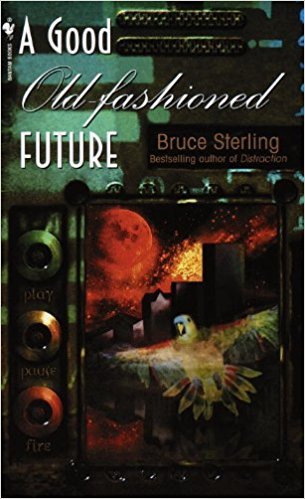
“The Littlest Jackal” — There is no element of fantasy in this story set in 1995 Finland. All the technology is real as are the political factions (well, maybe not the crazy American mercenaries). This story is only sf by Frederik Pohl’s pragmatic definition of sf – something published in an sf magazine since this story was first published in the March 1996 issue of Fantasy & Science Fiction. What this story is a wonderful satire and flashy slice-of-life into the turmoil of post-Soviet Eastern Europe. The story has a Japanese apocalyptic cult, a Mossad hit team, an attempt to set up a black bank (a subject, in part, of Sterling’s ISLANDS IN THE NET), Japanese pop culture fads, attempted revolutions to set up a free state in Finland, ex-KGB agents turned mobsters, and a rock and roll band manager. I liked the lit major who, with her giant elk rifle, wants to go out in a blaze of gunfire, the titular “Little Jackal” who is a hypocritical Marxist who wants to get rich and rule a country formed out of an obscure chunk of Finland. Starlitz – purveyor of fad items to the Japanese – bails out at the end to an uncertain fate. I’ve noticed in this collection that Sterling favors oblique endings more than I remember. I really liked the discussions on how certain weapons, though technological antiques and inefficient, are used by Raf and the Little Jackal because they have a familiar, intimidating shape. This is a bizarre look at a global world of international chaos, intellectual property theft, fanaticism, cynicism, disintegrating nations, and high tech. It’s colorful, bizarre, like something out of a William Gibson novel. And it’s today. Or, rather, yesterday already. That’s probably Sterling’s main point. We already live in a cyberpunk world.
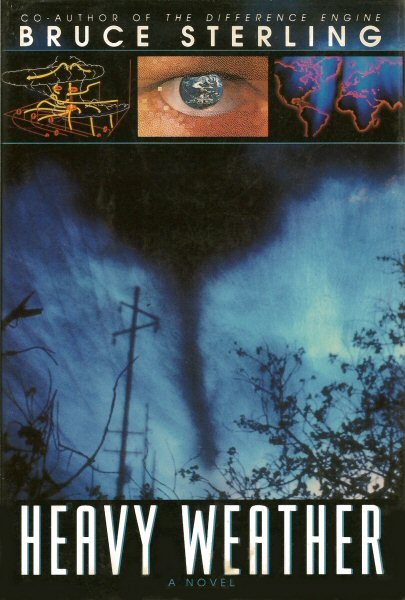
As always, this novel exhibits Sterling’s impressively plausible blend of future tech, politics, and economics, but it’s the best novel of his I’ve read because it’s very funny in parts. Here Sterling exhibits in his fiction the wit I’ve seen in his reviews and articles. I particularly liked the character of Alex – a bright young man who longs for a good death, refuses to feel guilty about the pain of others, and who has a young man’s passion for things like rare paper comic books.
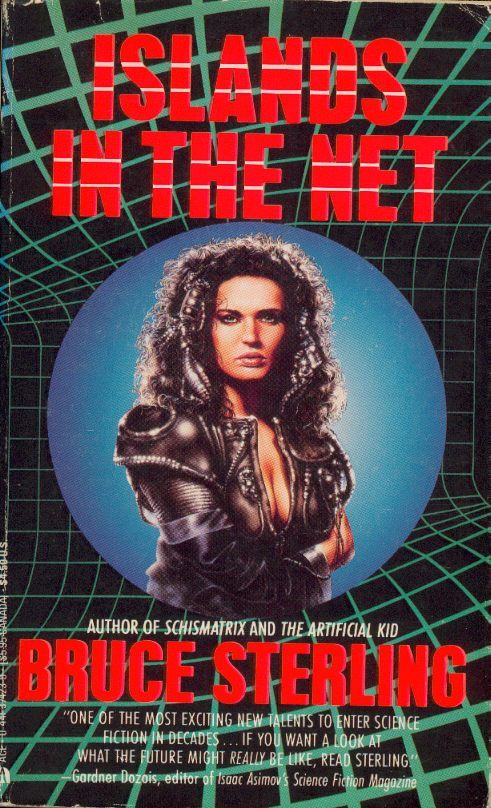
For all his hyperbole, posturing, and preaching as to what sf should and shouldn’t be and his wild proclamations on the evils of Reagan, Sterling is a first rate writer. He knows his science and technology (that you can terrorize — quite literally — someone’s brain with carboline, what you can do with an abandoned supertanker, the possibilities of a VCR as a revolutionary broadcast system) and he knows the workings of society (down to the rumors of Pope John Paul I’s death being connected to a Vatican banking scandal); he extrapolates in depth with a detailed style that thoroughly convinces; he creates plausible, complex characters; and he’s not afraid to ask the hard questions in this sometimes ambiguous political novel.
For more info on PIRATE UTOPIA, visit the Tachyon page.
Cover and by John Coulthart
